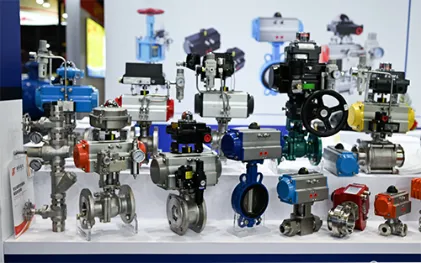Mobile:+86-311-808-126-83
Email:info@ydcastings.com
Exploring the Benefits and Applications of Cast Stainless Steel in Modern Manufacturing
The Importance of Cast Stainless Steel in Modern Manufacturing
Cast stainless steel has become an essential material in various industries due to its unique properties and versatility. This specific form of stainless steel is created by pouring molten metal into a mold, allowing it to solidify and take on intricate shapes. The result is a product that offers exceptional strength, corrosion resistance, and durability, making it ideal for demanding applications.
Properties of Cast Stainless Steel
One of the most notable characteristics of cast stainless steel is its excellent corrosion resistance. This property is attributed to the addition of chromium, which forms a protective oxide layer on the surface of the steel. This layer is crucial for preventing rust and deterioration, especially in environments that expose the material to moisture, chemicals, and extreme temperatures.
In addition to corrosion resistance, cast stainless steel exhibits remarkable strength and toughness. The manufacturing process enables the creation of complex geometries and components that might be difficult or impossible to achieve with traditional wrought steel. This capability is particularly beneficial in industries such as aerospace, automotive, and marine engineering, where precision and reliability are critical.
Another significant advantage of cast stainless steel is its ability to withstand high temperatures. For applications involving high heat, such as in furnace construction or exhaust systems, cast stainless steel remains stable and maintains its integrity, which extends the lifespan of components made from this material.
Applications in Various Industries
cast stainless steel

The versatility of cast stainless steel allows it to be utilized in numerous applications across various sectors. In the food and beverage industry, for instance, equipment and storage tanks made from cast stainless steel are favored for their hygienic properties and ease of cleaning. These attributes are essential for meeting health and safety regulations in food processing plants.
In the chemical and petrochemical industries, cast stainless steel is often used for valves, pumps, and piping systems due to its ability to resist harsh chemicals and high-pressure environments. The durability of cast stainless steel minimizes maintenance needs and reduces the risk of leaks or failures, which can have catastrophic consequences in these industries.
The construction industry also benefits from the use of cast stainless steel. Architectural elements, handrails, and decorative structures often employ this material to combine aesthetic appeal with structural integrity. The ability to cast stainless steel into intricate shapes allows architects and designers to be more creative while ensuring that the final product meets safety standards.
Furthermore, in the medical field, cast stainless steel is frequently used to manufacture surgical instruments and implants. The biocompatibility and sterilization capabilities of stainless steel make it an ideal choice for items that come into direct contact with the human body.
Conclusion
In summary, cast stainless steel plays a vital role in modern manufacturing due to its unique blend of properties. Its corrosion resistance, strength, high-temperature tolerance, and versatility make it suitable for a wide range of applications across diverse industries. As technology advances and new engineering challenges arise, the role of cast stainless steel will likely continue to expand. Its ability to deliver reliable performance in even the most demanding environments ensures that cast stainless steel will remain a cornerstone of innovation in manufacturing and design for years to come.
-
Valve Body Acts as the “Heart” of Flow ControlNewsMay.19,2025
-
Understanding the Importance of ImpellersNewsMay.19,2025
-
Importance of Automobile Water PumpsNewsMay.19,2025
-
How an Engine Oil Pan Works to Keep Your Car LubricatedNewsMay.19,2025
-
Common Materials Used in Pump Impeller ManufacturingNewsMay.19,2025
-
Ball Valve Casting in Modern Pipeline SystemsNewsMay.19,2025











